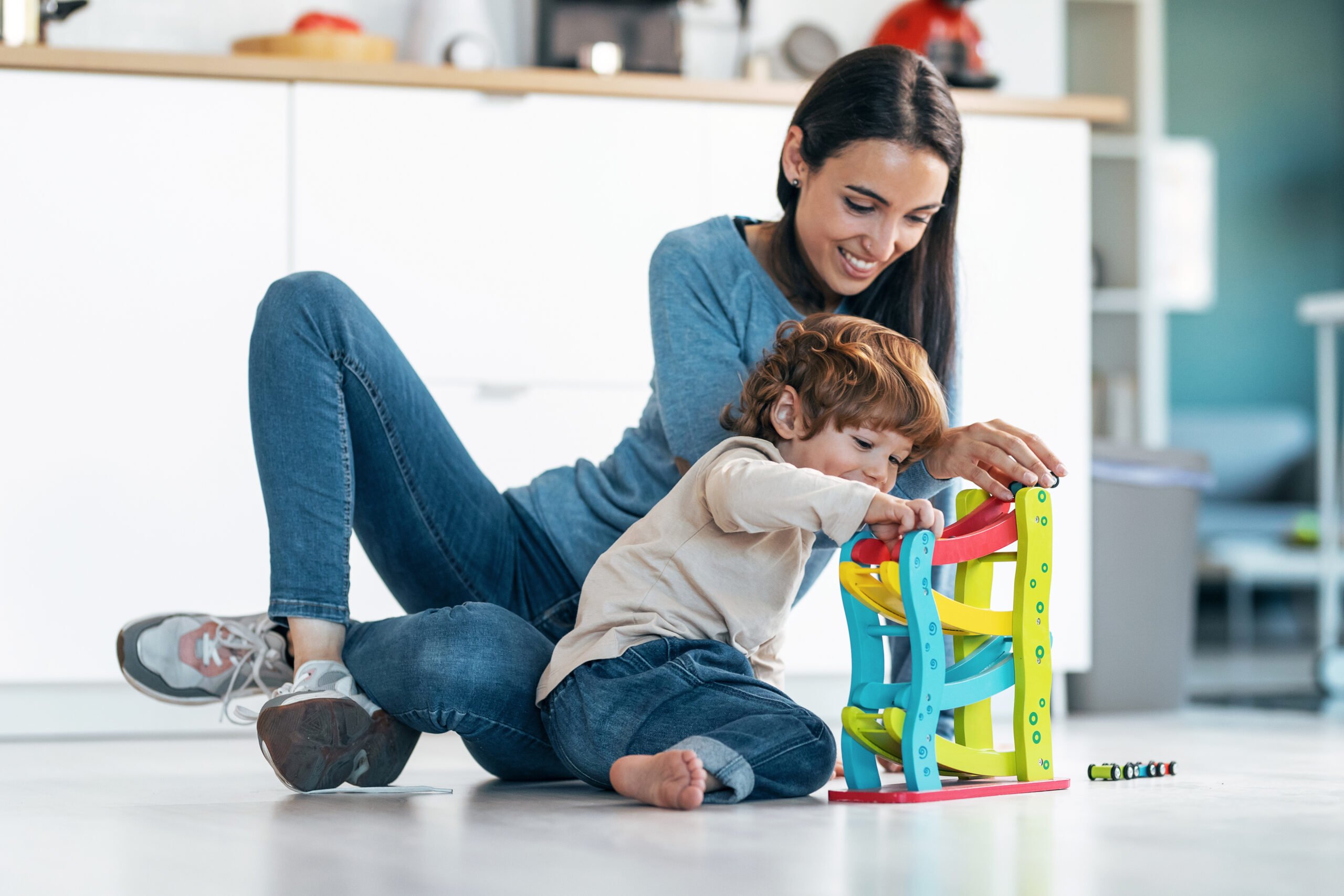Both at home and in a pediatric speech therapy session, play provides a fun and relaxed environment in which a child can improve their language skills. In a therapy practice, therapists use a wide variety of toys, games, puzzles and art projects to help children improve their speech. However, every step of the way, play is carefully incorporated into the progress toward the child’s goals.
Parents can enhance a child’s progress in therapy by learning how to add play-based language learning to home activities. This has proven to accelerate the child’s progress through a speech therapy program. Take a look at the easy activities below and see how you can work them into your daily routine.
Simple Speech Therapy Techniques to Use at Home
Choose from these easy ways to parallel what your child is doing during speech therapy.
- Let Your Child Start the Play. Invite your child to choose from toys, puzzles, games or art projects. Then join in the activity they are engaged in, using simple language to describe the actions you both are taking, such as feeding dolls, lining up cars or sending toys down a slide.
- Model Correct Language. What this means is to show your child how to correctly talk about what they are doing. You can also use this technique to help them correct speech patterns they may be struggling with. For example, if your child chooses to make a toy car go fast, you could say, “The red car goes fast!”
- Expand on Their Comments. Teach them more words that describe or explain actions. If they are dipping their toy puppy in a bowl of water and they say, “Puppy,” you could add, “Puppy all wet!”
- Invite Them to Direct Your Activities. Instead of asking them, “Would you like to do a puzzle?” ask them, “What should we do next?” Or “Which game should we play now?” This invitation encourages them to use more words to express their thoughts and desires.
- Use Repetition and Rhythms to Teach. Rhymes, rhythms and repetition help children remember new words and language. Read their favorite books many times over, sing the same songs that are easy for them to remember or play familiar games. The repetition makes it easier for them to master the language used.
Play-Based Therapy Sessions Utilize Many of the Same Techniques
When your child spends time with a professional speech therapist, some of their actions could be quite similar. But in that situation, each action is carefully designed to fit into an overall treatment plan to help the child reach their goals. The therapist may provide gentle obstacles that the child needs to use language to overcome. As an example, the child may be offered a number of toys that are just out of reach. The child must then use their words to get the toy they want. Or the play may focus on the use of the next sounds or letters the child is struggling to master.
Speech therapists also understand the whole structure of the body as it relates to speech: lips, tongue, mouth, vocal cords, diaphragm and more. A child’s speech therapy may include exercises (disguised as games) that strengthen or increase control of each part of this structure. In a scientific way, speech therapists address the many different causes for slow language development or speech difficulties.
For Best Results, Parents and Speech Therapists Work Together
If your child is going to speech therapy, your therapist may suggest the best actions you can take at home to help your child achieve their goals. The more you can follow these suggestions, the faster your child can progress through their program.
When you need to know if your child could be missing developmental milestones in speech, you can turn to Let’s Communicate for help. Our highly experienced and caring speech therapists are ready to offer evaluations or care to help your child enjoy speaking and sharing with family and friends. Call Let’s Communicate at (678) 963-0694 to schedule an evaluation today.


